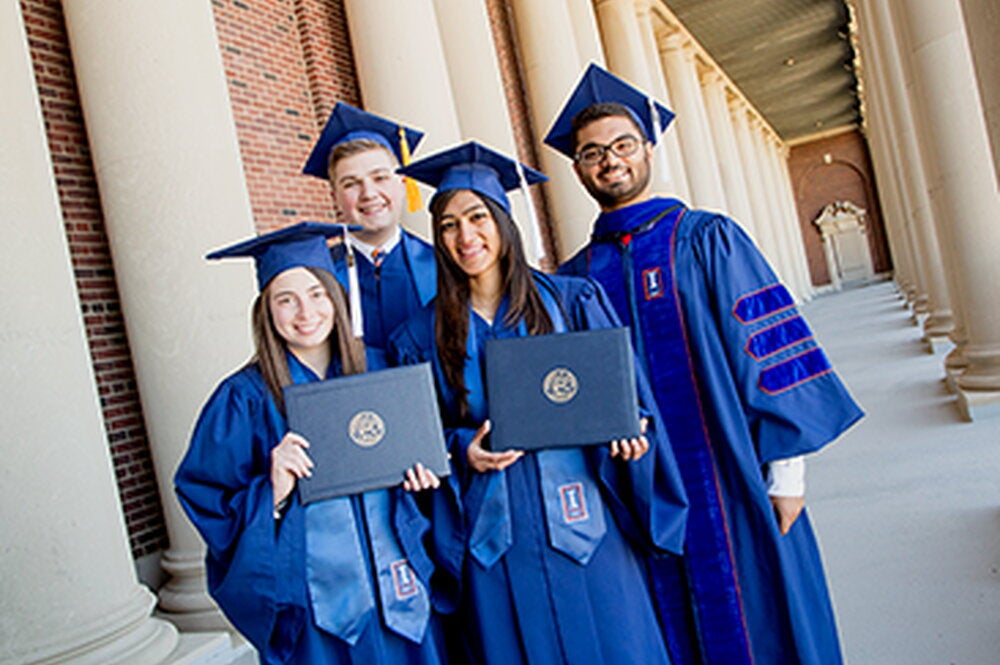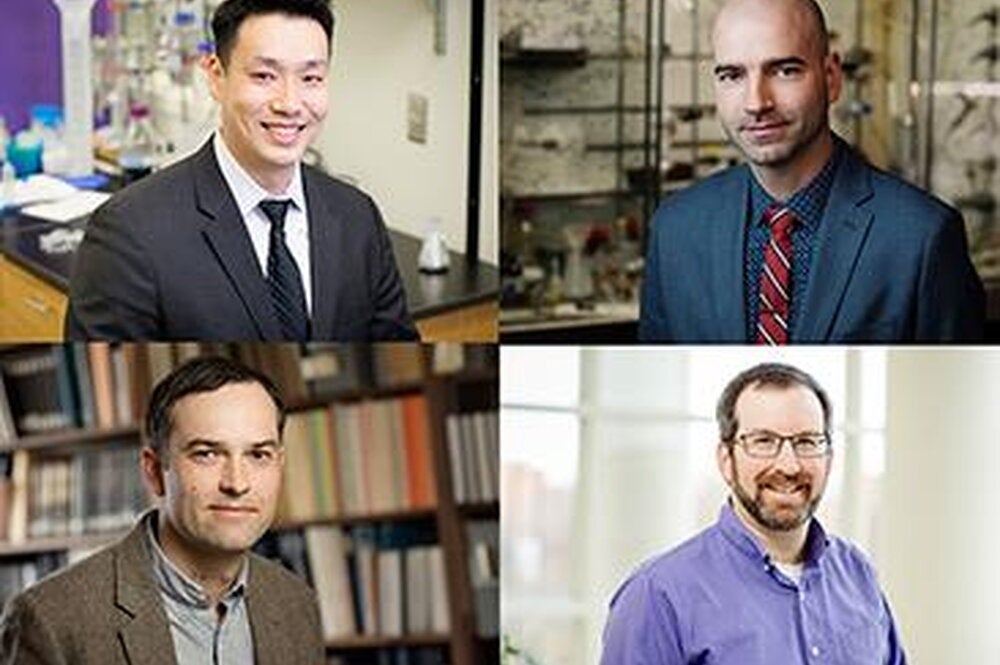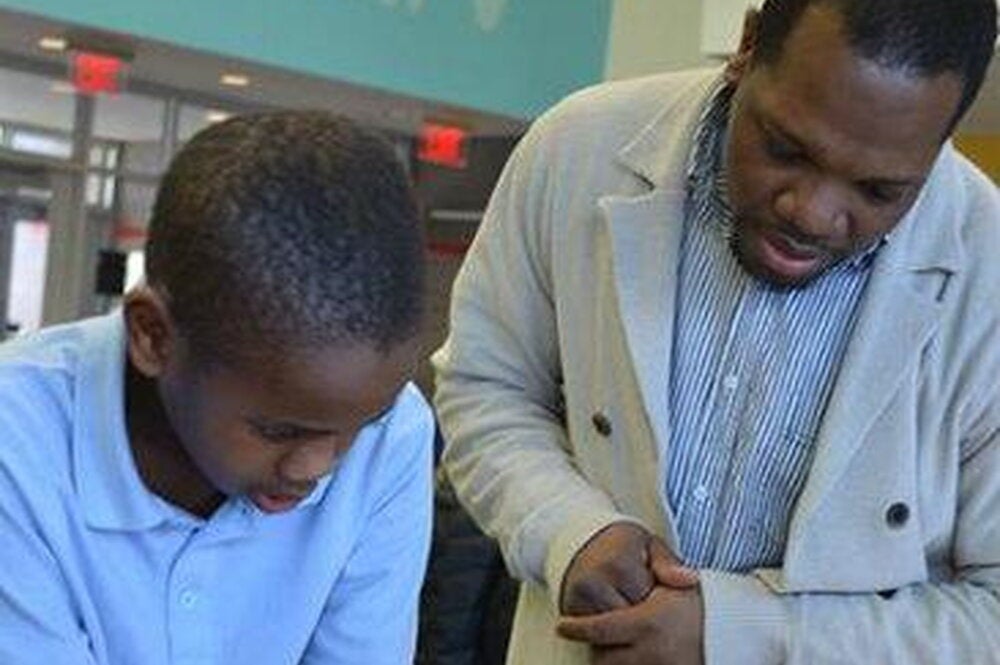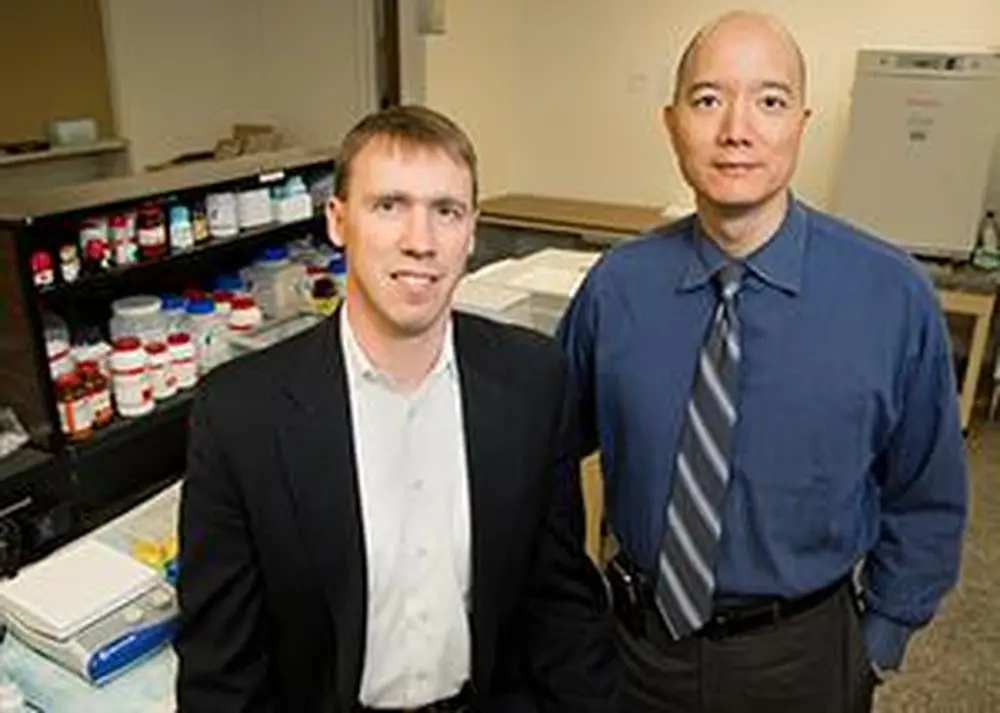
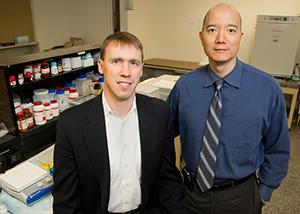
A promising drug that has successfully treated dogs afflicted by cancer is headed for possible human clinical trials pending a review by the U.S. Food and Drug Administration.
PAC-1, a compound developed by a chemistry professor at the University of Illinois and tested at the U of I Veterinary Teaching Hospital, could be headed for human clinical trials by mid-2014. An anonymous gift of $2 million—with the possibility of another $2 million in the future—ensures that human trials will proceed if approved by the FDA.
The human trials would be conducted at the University of Illinois Cancer Center in Chicago.
“The trial is going to be geared toward brain cancer patients,” says LAS chemistry professor Paul Hergenrother, who discovered PAC-1’s anti-cancer capabilities in 2006 and has been refining and testing it ever since. “One of the unusual features of this drug is that it does get into the brain, which most cancer drugs do not. So we want to embrace that and try to address the unmet clinical need of brain cancer.”
Arkadiusz Dudek, a physician and professor of hematology and oncology at U of I at Chicago, says the drug’s ability to penetrate brain tumors is unique.
“If successful, it will make a huge impact on survival, quality of life, and disease control in patients with primary or metastatic brain tumors,” he says.
The new investment is the outgrowth of years of testing and development of PAC-1 and derivative compounds in dogs with naturally occurring cancers, says Illinois professor of veterinary clinical medicine Tim Fan, who coordinated clinical trials of the drug in canine patients at the U of I Veterinary Teaching Hospital.
PAC-1 targets a cellular enzyme, procaspase-3, which when activated spurs a series of reactions inside the cell, causing it to self-destruct. Procaspase-3 has long been an attractive target for cancer therapy, in part because cancers often interfere with normal cell death, and in part because many tumors—including those of the breast, colon, liver and lung, along with lymphoma and melanoma—contain high levels of procaspase-3.
The compound has so far proven safe, and it has promising anti-cancer effects in cell culture in mouse models of cancer and in pet dogs with spontaneously occurring lymphomas and osteosarcomas. The researchers emphasized that the dogs used in the testing of PAC-1 were pets from the community with spontaneously occurring cancers, not laboratory animals with induced cancers.
“In addition to paving the way for the human trial, we have helped many veterinary patients that would not have otherwise received treatments for their cancer,” Fan says.
The compound is still considered to be in the early stages of development. The research has received support from the National Institutes of Health and from Illinois Ventures, as well as from Vanquish Oncology, a drug development startup company founded in 2011 by Hergenrother and current CEO Ted Tarasow.
Vanquish Oncology “has exclusively licensed the technology from the University of Illinois and is focused on moving PAC-1 into the clinic,” Tarasow says. “As with any investigational agent, determining the true safety and efficacy profile of PAC-1 will take several years of human clinical trials.”
